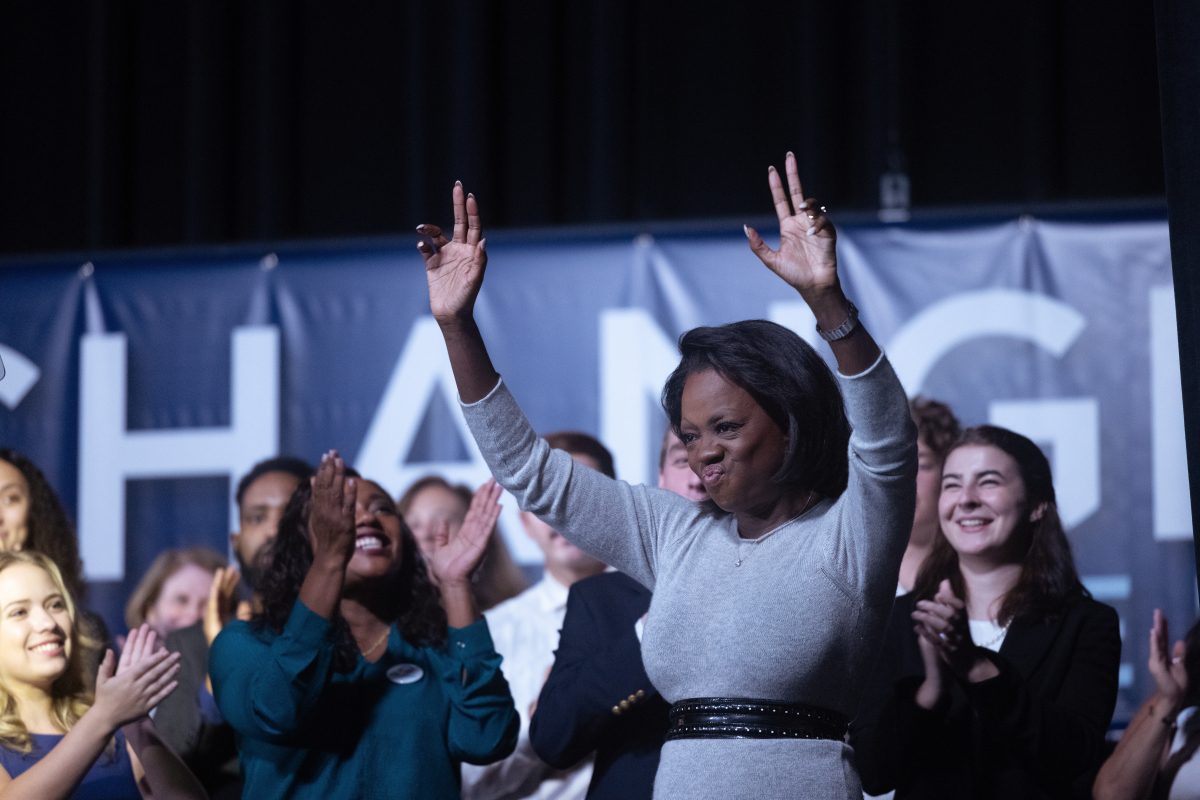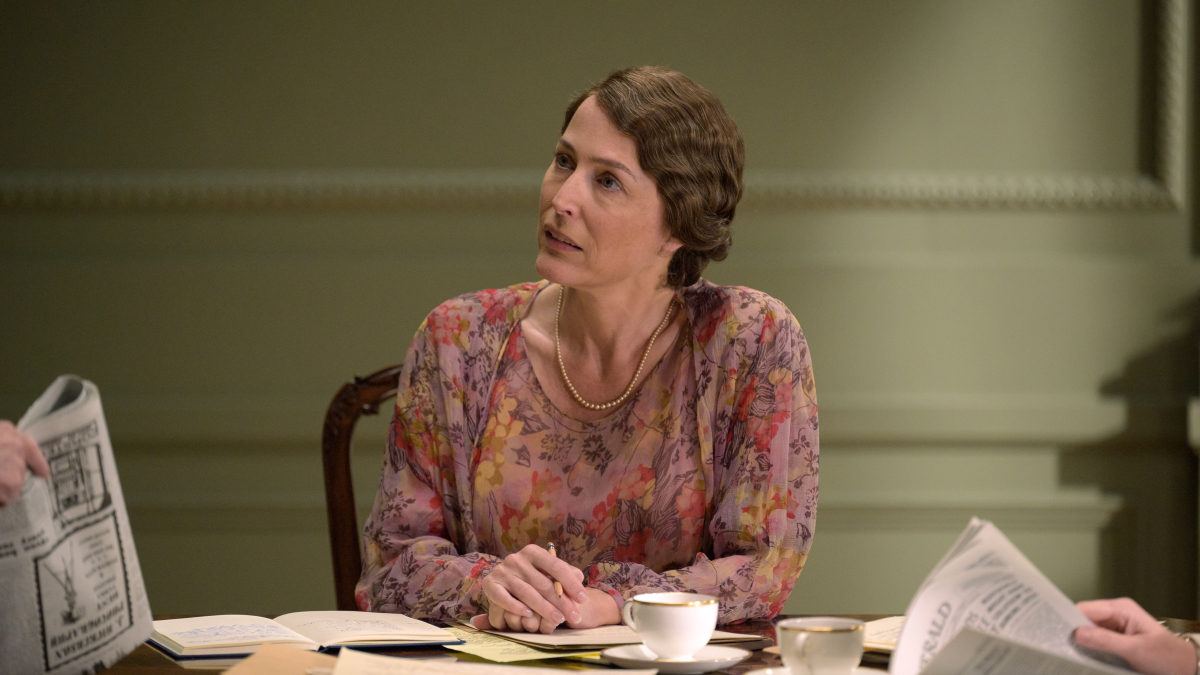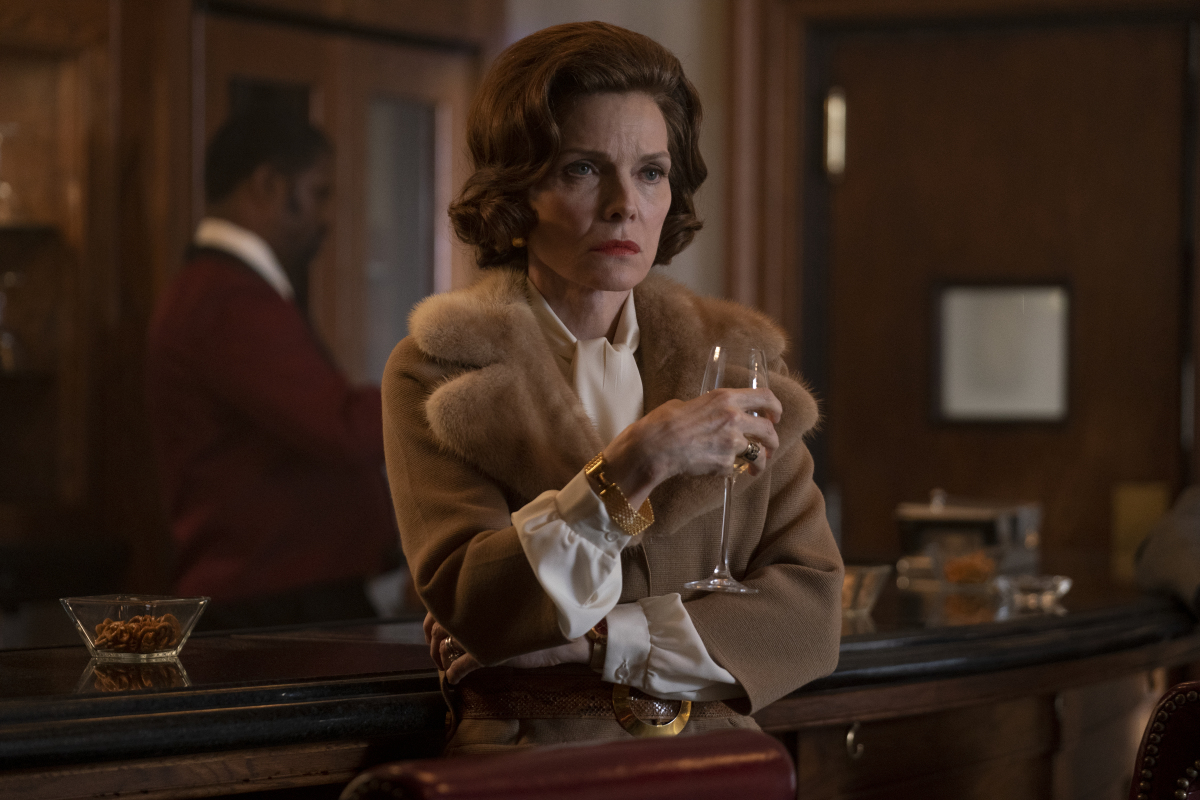The First Lady could have been great. A drama that interweaves the biographies of three extraordinary FLOTUSes—Eleanor Roosevelt, Michelle Obama, and Betty Ford—is a tantalizing project for prestige TV. Such a premise could, with deeply researched scripts and evocative production design, put a compelling face on the broader history of women in America from the early 20th century through the present. You’d struggle to find more distinguished lead actors than Viola Davis, Michelle Pfeiffer, and Gillian Anderson, or a stronger supporting cast than one that includes Kiefer Sutherland, Dakota Fanning, Ellen Burstyn, Judy Greer, and Lily Rabe.
It would be hard to overstate how much Showtime’s The First Lady, premiering April 17, squanders these advantages. Given the opportunity to complicate the textbook version of American history, look beyond the sexist media narratives of each First Lady’s day, and bind together the legacies of three of the past century’s most important women, first-time creator Aaron Cooley and showrunner Cathy Schulman (a producer of the preachy 2006 Oscar winner Crash) stick to the well-trod surface. Two of the three stars—Anderson as Roosevelt and Davis as Obama—are egregiously miscast. And series director Susanne Bier, an accomplished Danish filmmaker whose recent output ranges from the glossy fun of The Night Manager to the glossy meh of The Undoing to the sheer inanity of Bird Box, fails to salvage much worth watching.

There’s a fair amount of confusion baked into the show’s structure. Instead of telling each First Lady’s story in turn, it jumps between key moments in their respective political and personal lives, juxtaposing story lines in ways that sometimes sync up thematically and sometimes don’t. (In one episode, as Michelle faces bigotry and Eleanor crusades against it, Pfeiffer’s Betty transitions from popular FLOTUS to lonely Palm Springs party girl.) Too often, the camera cuts away from a vignette just as it’s about to get messy, never to return. There is a chronological element to the series, which opens by tracing each woman’s path to the White House and closes with a look at what they did after leaving Washington, but it also frequently returns to the First Ladies’ respective youths, in scenes where they’re portrayed by younger actors.
Smoother transitions between eras would help. But they wouldn’t solve the show’s core problem: that it doesn’t illuminate much about its venerable subjects because the cast isn’t right and the writing demonstrates minimal insight into the protagonists’ inner lives or personal relationships. Anderson can be wonderful in the right role—which is to say, a lively role—whether it’s The X-Files’ iconic Scully or the unfiltered sex-therapist mom in Sex Education. So I’m not sure why she keeps turning up, lips puckered as though she’s tasting a lemon, to play mirthless grand dames of politics. Sadly, her Eleanor is just as stodgy and affected as her Margaret Thatcher was in The Crown. Speaking of which: was Olivia Colman too busy to play Roosevelt?

Davis, one of the greatest actors of her generation, has the opposite problem. She masters Michelle’s speech patterns and mannerisms but has too inherently formal a manner to telegraph her character’s disarming warmth. This poor casting choice is compounded by the mistake of pairing Davis with O-T Fagbenle (The Handmaid’s Tale), a relatively chill presence who’s more than 15 years her junior, as Barack. When they’re together, POTUS reads as a bit of a twerp. Meanwhile, the events of the Obama sections happened recently and publicly enough that the relationship between real footage of the couple and these reenactments verges on uncanny.
Pfeiffer’s Betty Ford is the only lead performance that feels like more than an impression. A masterly portrayer of women with demons who’s in the midst of a marvelous second act, she gives us a strong, principled yet serially wounded First Lady who spends decades trying to regain the sense of purpose she felt as a young dancer. All of her struggles, from breast cancer to addiction, are rooted in a body that habitually betrays her conscious will. The character lends itself to melodrama. But Pfeiffer tempers Betty’s extreme highs and lows with intelligence, humor, and empathy. These choices give her segments a sense of purpose that the others lack.

They also throw into relief the shoddiness of the show’s overall construction. A drama about real political history, with such an epic scope, should be scrupulous in making each story feel true to its era. Instead, contemporary buzzwords keep invading 20th-century vernacular. We hear about “racial justice” in the 1930s, “mental health awareness” in the ’70s, “culture fit” in the ’80s. While the series fails to make meaningful connections between each heroine’s antagonists (Franklin’s mother for Eleanor, Rahm Emanuel for Michelle, Dick Cheney and Donald Rumsfeld for Betty) it makes their male counterparts interchangeable, essentially framing FDR (Sutherland), Ford (Aaron Eckhart), and Obama as the same spineless, distracted, wishy-washy guy.
To the extent that there’s an overarching argument here, as there always should be in historical fiction, it’s that Mrs. Roosevelt, Mrs. Ford, and Mrs. Obama served as the consciences of their husbands’ administrations, even as those presidents and their aides sought to limit each woman’s influence. The ladies’ moral purity tempers the men’s ambition. Unfortunately, that takeaway is just as trite as it is gender-essentialist. As a result, the show doesn’t even succeed as hagiography. By positioning these bold, weird, brilliant, troubled, singular women as selfless American saints, The First Lady robs them of something every compelling character needs: humanity.
More Must-Reads from TIME
- Donald Trump Is TIME's 2024 Person of the Year
- Why We Chose Trump as Person of the Year
- Is Intermittent Fasting Good or Bad for You?
- The 100 Must-Read Books of 2024
- The 20 Best Christmas TV Episodes
- Column: If Optimism Feels Ridiculous Now, Try Hope
- The Future of Climate Action Is Trade Policy
- Merle Bombardieri Is Helping People Make the Baby Decision
Contact us at letters@time.com